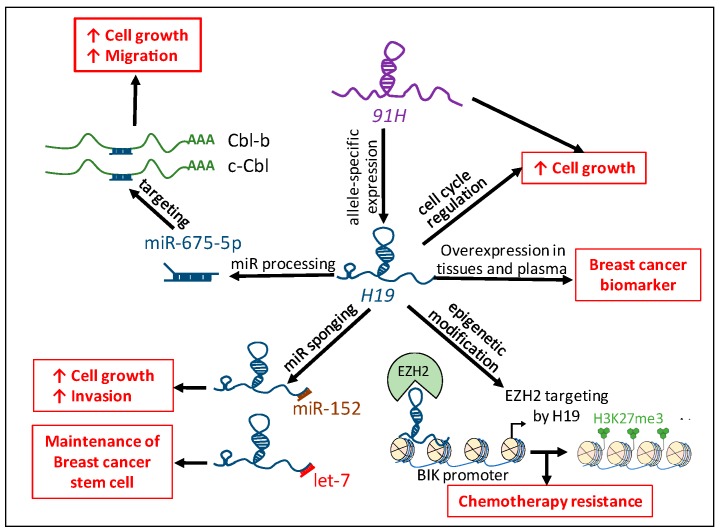Figure 4.
Implication of H19 in human breast cancer. The H19 lncRNA favors breast tumorigenicity by regulating the cell cycle, through the processing of miR-675-5p and the sponging of miR-152 and let-7, and regulating chemotherapy resistance through epigenetic modification. The H19 antisense, 91H, allows allele-specific expression of H19 and participates in breast cancer cell biology. H19 and miR-675 are overexpressed in breast cancer tissues and plasma of patients and could be used as tumor biomarkers. H3K27me3: Trimethylation of lysine 27 on histone H3. Red arrows indicate an increased phenotype.

